In this post, I’ll be sharing the 9 Best Healthy Gut Foods for Better Overall Health + a list of 29 other great gut foods to eat too!
This post is for informational and educational purposes only. This post should not be taken as medical advice or used as a substitute for such. We do our best to present the best and most accurate information, however, we are not a licensed medical professional. All information on this Site is from personal experience or opinion, and we are not liable for risk and issues associated with using or acting upon the information on this Site. See Terms & Conditions for further information.
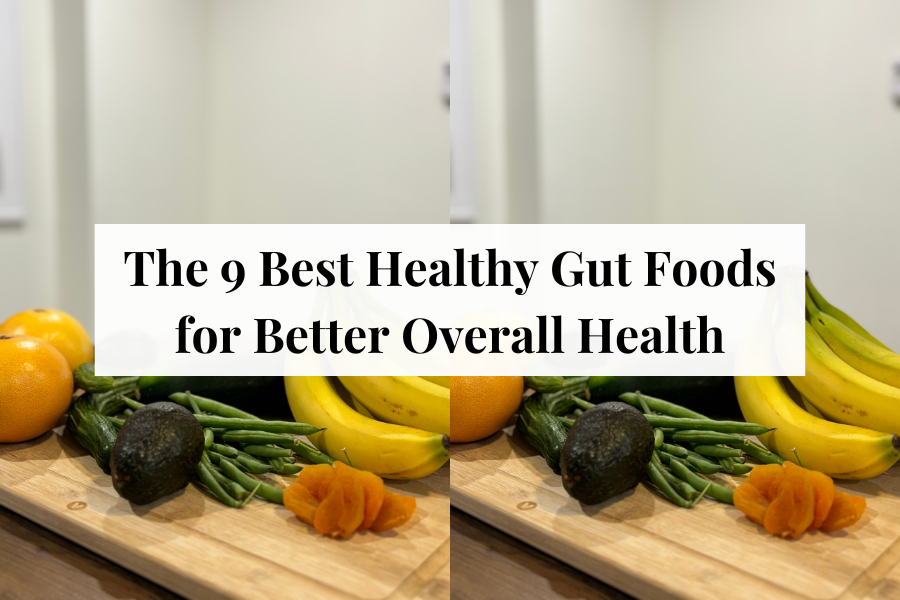
Our gut is the largest immune system organ, containing between 70-80% of all immune cells.
A lot of people go their whole lives never realizing that their health problems are related to their gut and start because of an imbalance in gut bacteria.
Having an imbalance of gut bacteria or gut microbiota has been linked to conditions such as inflammatory bowel disease, irritable bowel syndrome, obesity, and even type 2 diabetes.
With 70-80% of our immune cells in our gut, it’s extremely important that we take care of our gut microbiome.
We can help our gut microbiome by eating healthy gut foods. Foods rich in probiotics and prebiotics and foods that help feed the good bacteria in our gut.
To find out which foods to eat for great gut health keep reading!
This post is all about the 9 Best Healthy Gut Foods.
Signs of an Unhealthy Gut
First off let’s talk about the signs that you may have an unhealthy gut microbiome.
There are thousands of people walking around every day with serious gut-related health problems that they aren’t even aware of.
A lot of people are sick regularly, and they just chalk it up to that’s what life is. They work a lot, they’re tired, they don’t feel great but that’s just how life is.
That is so wrong!
You shouldn’t be feeling awful all the time. That is a straight giveaway that something isn’t right in your body, and you need to fix it.
A sign that you may have an unhealthy gut is if you experience any digestive problems.
Digestive problems could be anything from diarrhea, constipation, bloating, heartburn, or IBS (irritable bowel syndrome). These are some of the obvious signs your gut isn’t happy.
You may also notice you have problems sleeping. Not sleeping well, having a hard time falling asleep, staying asleep, or waking up throughout the night.
An unhealthy gut can also show through the skin, with skin irritations, rashes, or acne. Often internal health problems will show on the surface of our skin.
Another way to know if you have an unhealthy gut is if you’re always tired and sluggish, and never have a lot of energy.
This could also lead to mood changes, being upset or sad often, or even experiencing symptoms of depression.
Also, if you struggle at all with unexplainable weight loss or weight gain that can be a sign you need to fix your gut health.
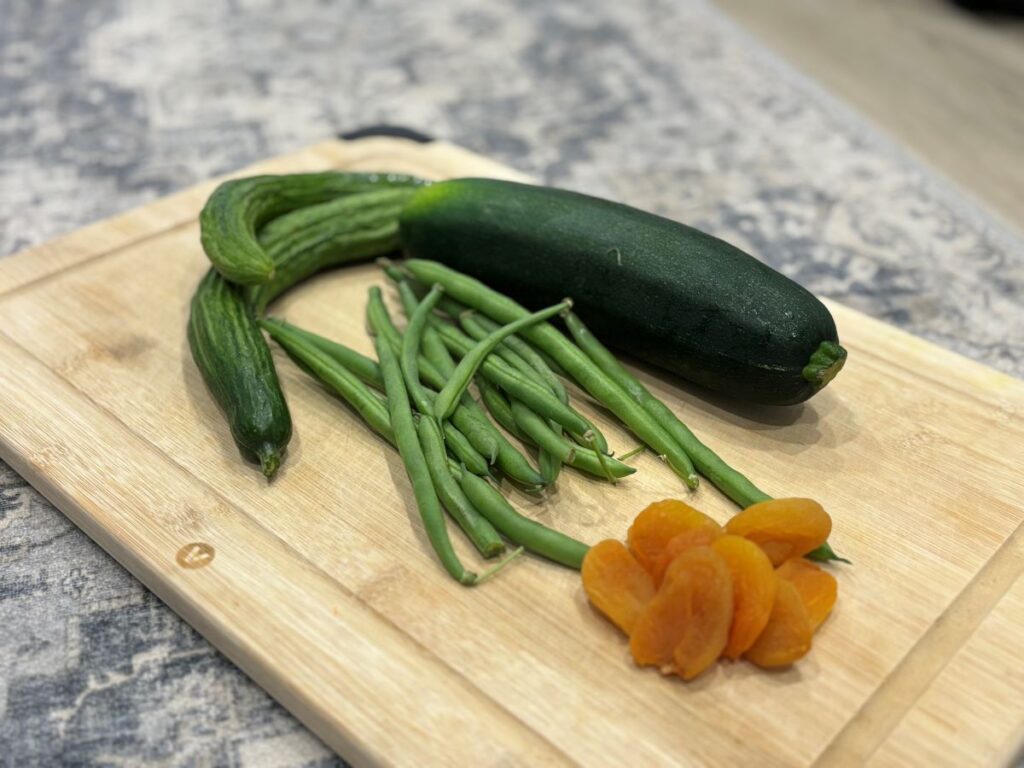
Why Our Gut Microbiome is so Important
Okay, we’ve gone over some signs that you may have gut issues.
Now let’s dive into why our gut health and gut microbiome are important for our overall health.
First, what is our gut microbiome?
Our gut microbiome is an itty bitty tiny, microscopic world inside our body.
Consisting of trillions of microorganisms that live in our digestive tract and can affect many aspects of our overall health and digestive health.
These microorganisms are made of viruses, bacteria, parasites, and fungi. All of which our body needs to function, so long they are all in a healthy balanced state.
That is the key.
When the good and bad bacteria in our gut are out of balance, we start experiencing gut-related health problems.
Let’s say you’re a plant in a garden and the soil is your gut microbiome.
If your soil is healthy and thriving with nutrients and good bacteria, then you the plant, will be healthy and thrive. Growing tall with lots of leaves, seeds, and flowers.
However, if your soil is nutrient-depleted or has pests, weeds, or viruses, it can affect your health as a plant and you may start to lose leaves, discolour, or wilt.
You will not be thriving.
This is important because our gut microbiome helps break down the food we eat into vitamins and nutrients. These vitamins and nutrients then get absorbed into our bloodstream and moved throughout our body to all our organs.
It also recognizes any bad bacteria or viruses that may have entered our body and kills them so they can’t enter our bloodstream making us sick or ill.
Isn’t that amazing!
Our bodies are so smart, they’re constantly trying to keep us healthy, by protecting us from harmful bacteria.
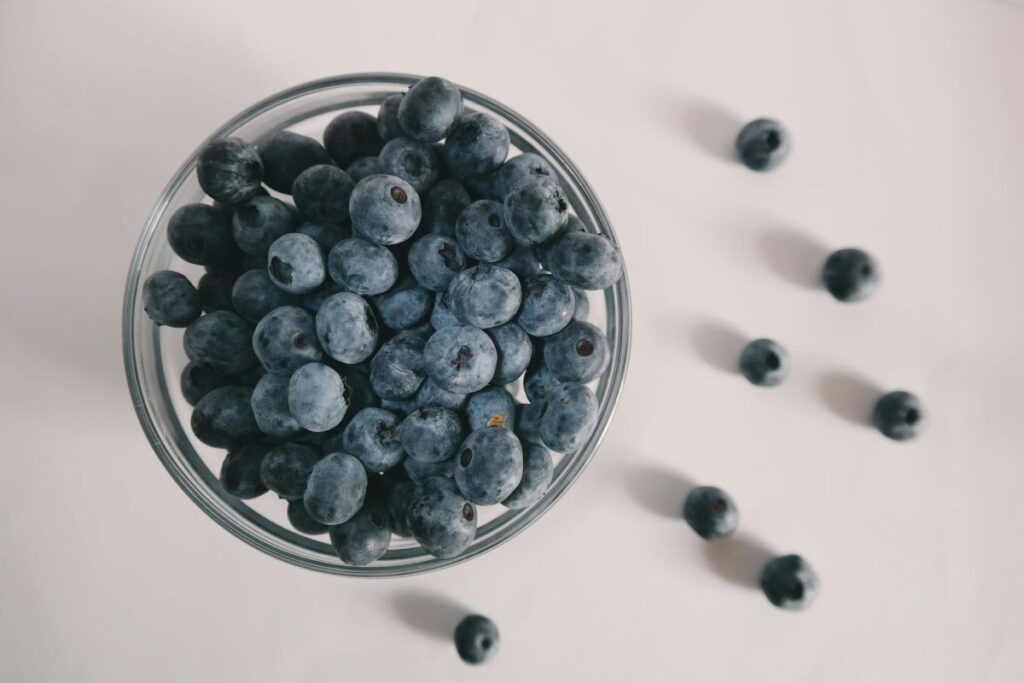
How to Fix an Unhealthy Gut
Okay, I’ve gone on long enough about how cool our gut microbiome is, now let’s get to the good stuff about how you can fix your unhealthy gut.
Before we jump right in let’s go over a couple of very important things our gut needs to be healthy.
Those are probiotics and prebiotics.
You may have heard of these before.
A lot of times people take probiotic supplements to help their gut-related issues and that’s exactly correct.
Probiotics are certain foods or supplements that carry live microorganisms. These microorganisms help improve the good bacteria in our gut.
Many people know about probiotics but may have not heard as much about prebiotics.
Prebiotics are foods we eat, usually fiber-rich foods, that act as food for the good bacteria in our gut. They help to improve the balance of our gut microorganisms.
Together probiotics and prebiotics help to maintain the balance of good and bad bacteria in the gut to help keep us healthy.
There are a few other ways you can help improve your unhealthy gut through your daily routines:
Chew Your Food More
The first way is to chew every bite of food more. If you start paying attention to yourself while you eat you may notice you don’t chew your food all too much.
It’s recommended that you chew each bite of food at least 32 times, and harder foods like nuts or steaks may require more chewing.
Chewing allows your saliva to help break down your food before it continues through your digestive tract.
If it’s already broken down a good amount before it reaches your stomach it’s less work for your stomach and intestines to do. Making it easier to be absorbed into your bloodstream when it reaches your small intestine.
Less Stress
Your body uses a lot of energy to digest the foods you eat.
This means that when your body is dealing with something else, like stress, most of its energy is focused on your feelings or unease or being upset instead of digesting your food.
You may have noticed food doesn’t sit as well in your stomach if you’re worried about something. That is completely correct.
Food has a harder time breaking down and moving through your digestive system when you’re stressed.
By trying to relax more before you eat and throughout your entire day, you’ll notice your digestion will improve.
Move More
Exercise is a wonderful way to help your digestion.
When you exercise in any capacity, it increases blood flow throughout your body, even in your digestive system.
With increased blood flow your digestive system works more efficiently and can usually break down and move food along easier than compared to if you sit all day.
Even if you can go for a little walk after you eat, that’s a great way to help digestion.
Prioritize Sleep
Sleep is such an essential part of our overall health and it’s not different for our gut health.
Sleep is when your body rests and repairs. When you sleep, you’re not exerting any energy doing other tasks so your body can use all its energy to repair or restore.
If you only get 6 hours or less of sleep a night, try starting to prioritize getting at least 7 hours, or 8-9 hours, you’ll feel so much better.
Not only better in your gut health but overall health too.
Stay Hydrated
Water makes up 60% of our bodies so there’s no doubt we need to stay hydrated to help our guts stay healthy
Water helps food move along our digestive tract and reduces constipation and bloating.
You can keep hydrated by sipping water during your day or even getting water through your food. Think watermelon and cucumbers, they have so much water!
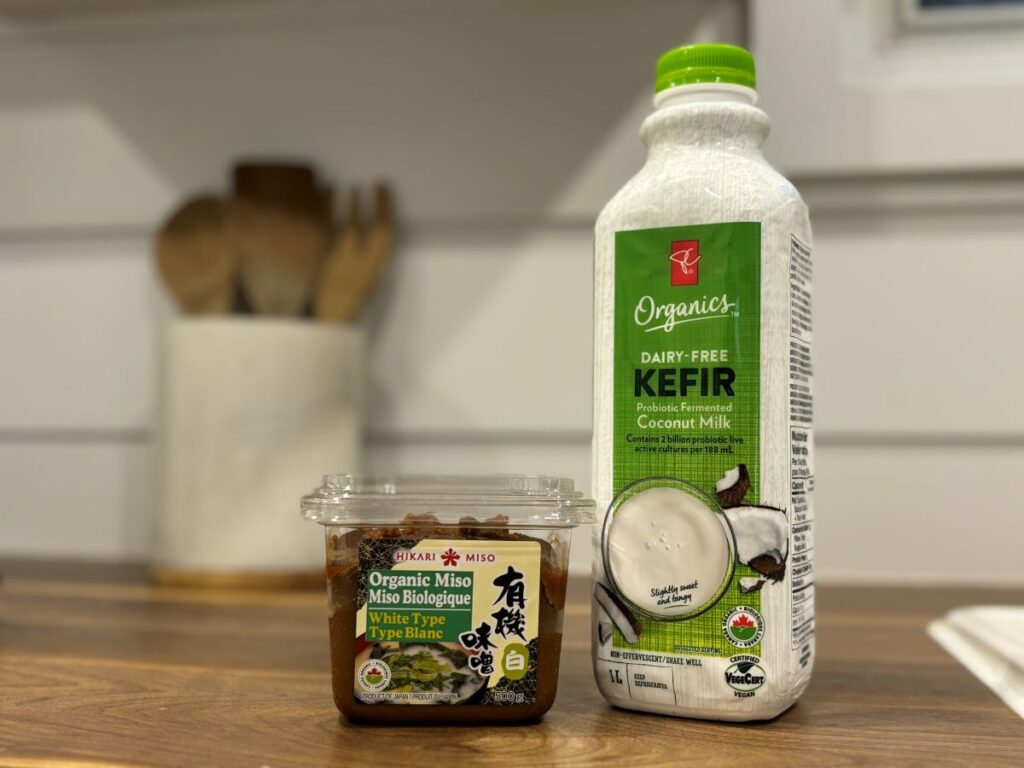
9 Best Foods for a Healthy Gut
Here are 9 foods rich in probiotics and prebiotics that you can incorporate into your meals to help create a healthier gut microbiome.
Yogurt
Yogurt has so many wonderful probiotics and live bacteria to help our gut health.
When you go to the store look for yogurts that say “live active cultures” on the package, this will guarantee you’re getting the beneficial bacteria your gut needs.
Kefir
Kefir is another one of the great healthy gut foods.
It’s a fermented milk product, usually made from cow or goat milk. There are also vegan options like coconut kefir if you don’t eat animal products.
Kefir is loaded with probiotics, even more than yogurt.
Tempeh
Tempeh is made from fermented soybeans.
If you’re vegetarian or vegan you may already eat tempeh for a good source of protein, but it’s also great because it’s full of probiotics since it’s fermented.
It also has lots of active enzymes and prebiotics to help our gut.
You can marinate or season tempeh like any other protein source, it absorbs any marinade great!
Miso
Miso is made from either fermented rice, soybeans, or barley and it’s turned into a paste.
It has millions of beneficial bacteria, making it another one of our healthy gut foods. It’s also full of probiotics and helps to increase the enzymes in our gut.
There are multiple different flavours of miso so you can definitely find one you’ll like. It’s a great food to add to soups, stews, or sauces.
Sauerkraut
Sauerkraut is mostly known for being a topping on hotdogs or sausages.
It’s a German food made from fermented cabbage and the word sauerkraut literally means “sour cabbage”. Pretty straightforward!
Again, because it’s fermented it’s full of good bacteria and probiotics.
Kimchi
Kimchi is a Korean dish made from fermented salted vegetables and different seasonings, often based around cabbage. It’s a spicy, savoury, sour and salty flavour.
It is full of natural probiotic bacteria that are great for the gut microbiome. You can add it to noodles dishes, rice, or even stews.
Kombucha
Kombucha is another one of our wonderful healthy gut foods!
It’s a fermented tea drink that originated in China. It’s full of antioxidants and probiotics, it boosts the health of our intestinal cells and helps with food digestion.
It comes in so many different flavours to choose from. I encourage you to try it, I love it!
Garlic
Garlic is a prebiotic food that is good for our gut.
That means it feeds the good bacteria we get from the probiotic-rich foods and it helps create that balance in our microbiome that we want.
Before you eat garlic chop it at least 10 times, this triggers an enzyme reaction that boosts its health benefits.
Ginger
Ginger, also known as ginger root has been used for centuries in Traditional Chinese medicine for medicinal purposes, due to its many healing properties.
It’s another one of the healthy gut foods because it’s a prebiotic that feeds all the good bacteria in our gut.
Ginger also increases the rate at which food moves through our digestive tract and can help with bloating, gas, and cramping.
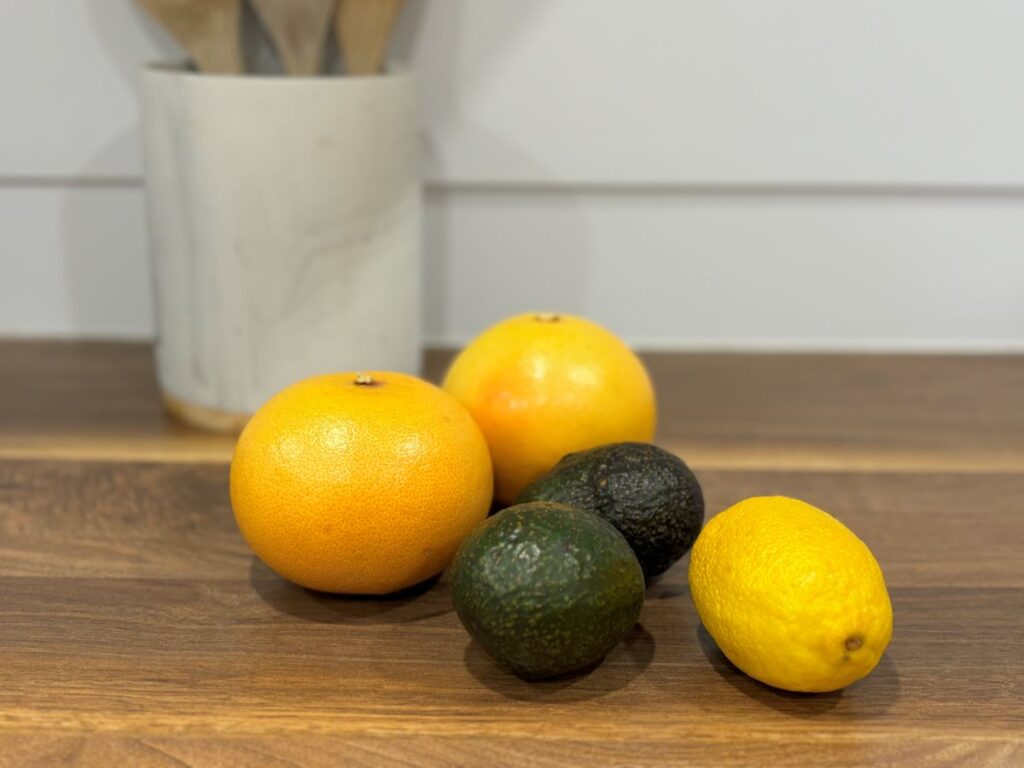
29 Other Healthy Gut Foods
Along with eating foods rich in probiotics and prebiotics, it’s also good to eat a wide range of other healthy foods.
Other foods that are good for our gut are whole foods, like vegetables, fruits, nuts, whole grains, and legumes.
These foods will help to feed the good bacteria in your gut and allow the good and bad bacteria to find balance.
29 Other Healthy Gut Foods to Eat:
- Cucumber
- Red pepper
- Zucchini
- Sweet potatoes
- Parsley
- Arugula
- Broccoli
- Cauliflower
- Watermelon
- Green beans
- Raspberries
- Strawberries
- Blueberries
- Oranges
- Grapefruit
- Avocado
- Pineapple
- Cherries
- Bananas
- Almond
- Lentils
- Chickpeas
- Black beans
- Flax seed
- Asparagus
- Artichokes
- Onions
- Oats
- Apricots
Pretty much load up on all the whole foods and your gut microbiome will thank you!
Now you have all these tools to start creating a healthier gut microbiome.
If you use them, you’ll begin to notice how much better you’ll feel.
There is one more good practice you can start to help create a healthy gut microbiome.
Along with eating all the healthy gut foods, it’s important to reduce the amount of gut-harming foods you eat.
Eating highly processed foods, foods high in sugar, or foods that contain seed oils can contribute to possible digestive problems.
By increasing good gut foods and decreasing bad gut foods, you’ll notice a definite increase in energy and better overall digestion.

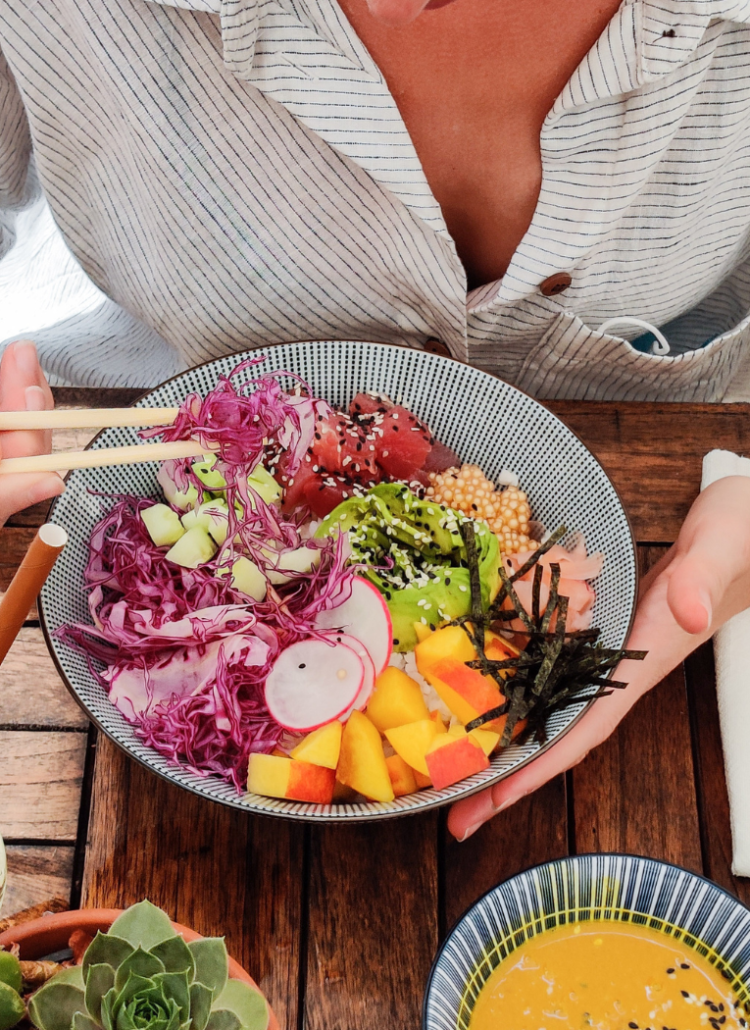
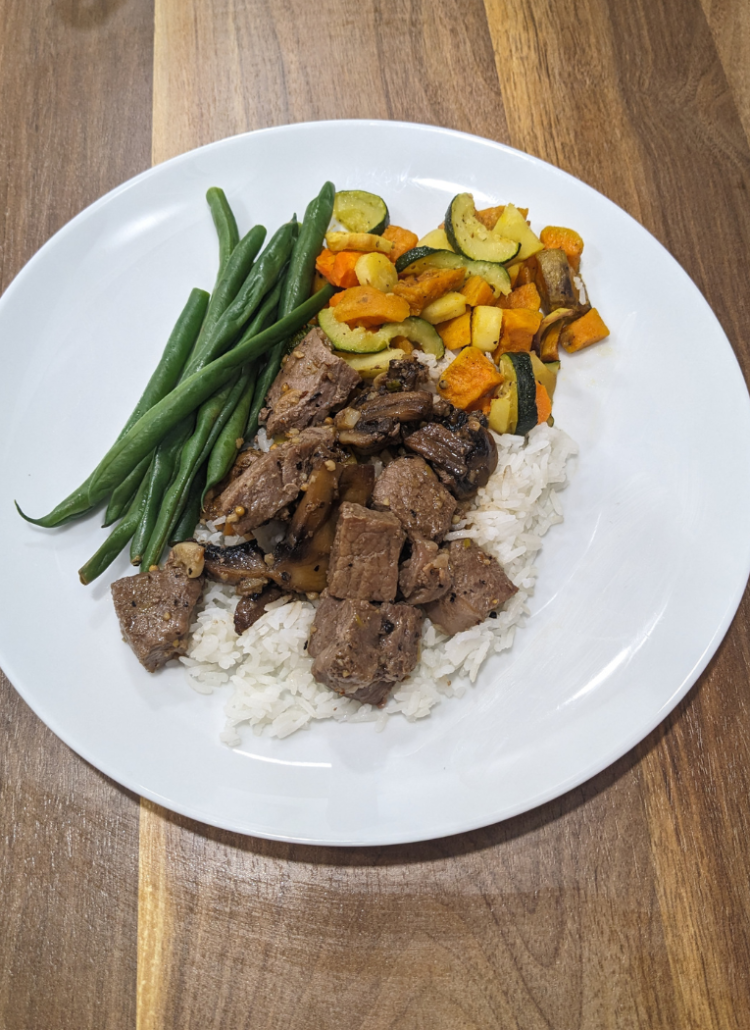
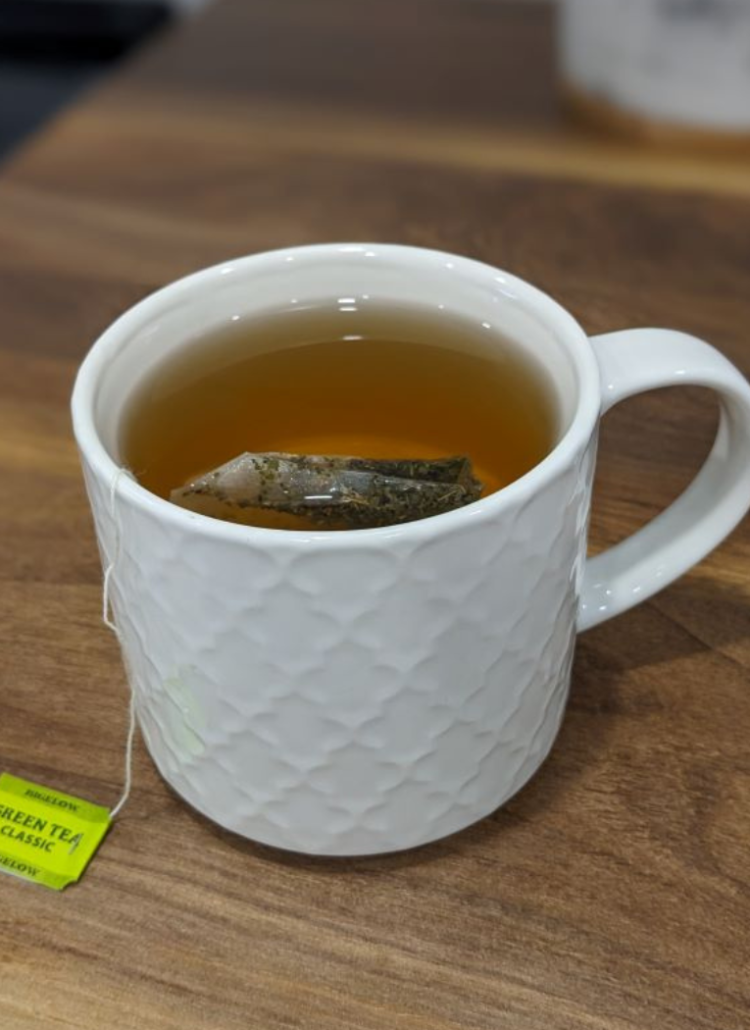

[…] Eating the right foods is another way to help improve digestion, these are the 9 best foods for a happy gut and digestive system. […]